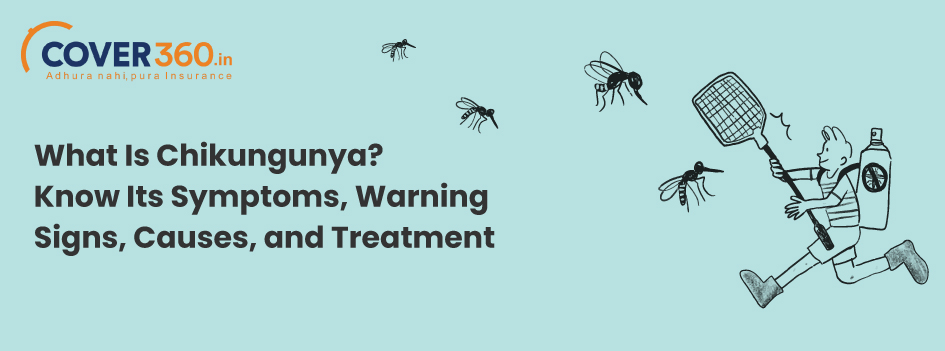Chikungunya is a disease that resembles dengue and is transmitted by the bite of infected mosquitoes. It is caused by the chikungunya virus (CHIKV). With the onset of the monsoon, the cases of diseases start to increase.
Symptoms of Chikungunya
A person suffering from Chikungunya can have several symptoms. The CHIKV infection causes severe joint pain and fever. The most common symptoms include:
- Muscle pain
- Headache
- Nausea
- Fatigue
- Rash
- Joint selling
Joint pain can last for many days even for months or years. Serious complications are not common. However, certain atypical severe issues can cause long-term symptoms and even death, particularly in older people.
Warning Signs of Chikungunya
Chikungunya virus gives numerous warning signs, such as pain in different joints of the body. It starts causing inflammatory arthritis and acute cutaneous eruptions along with other systemic manifestations. Further, patients can have viremia within a few days of infection. Also, the virus can directly attack and replicate within the joints.
Causes of Chikungunya
Chikungunya is spread among people by the bite of a mosquito that is infected. This mosquito-borne disease occurs because the CHIKV virus is transferred to the human body by infected mosquitoes. These mosquitoes are primarily Aedes aegypti and Aedes albopictus. People are the primary host of the chikungunya virus during epidemic periods.
Treatment of Chikungunya
So far, there is no antiviral treatment to treat this dreadful disease. But, medical sciences are investing and practicing ample therapeutic options. Treatment for symptoms can be fluids, rest, and the use of analgesics and antipyretics. Doctors also use nonsteroidal anti-inflammatory drugs that control acute fever and pain.
A common treatment for chikungunya
- Take plenty of rest.
- Drink fluids
- Prevent dehydration.
Doctors can also suggest medications like acetaminophen or paracetamol for reducing fever and pain. It is advisable not to take aspirin and other non-steroidal anti-inflammatory drugs (NSAIDS) as long dengue is ruled out for reducing bleeding.
